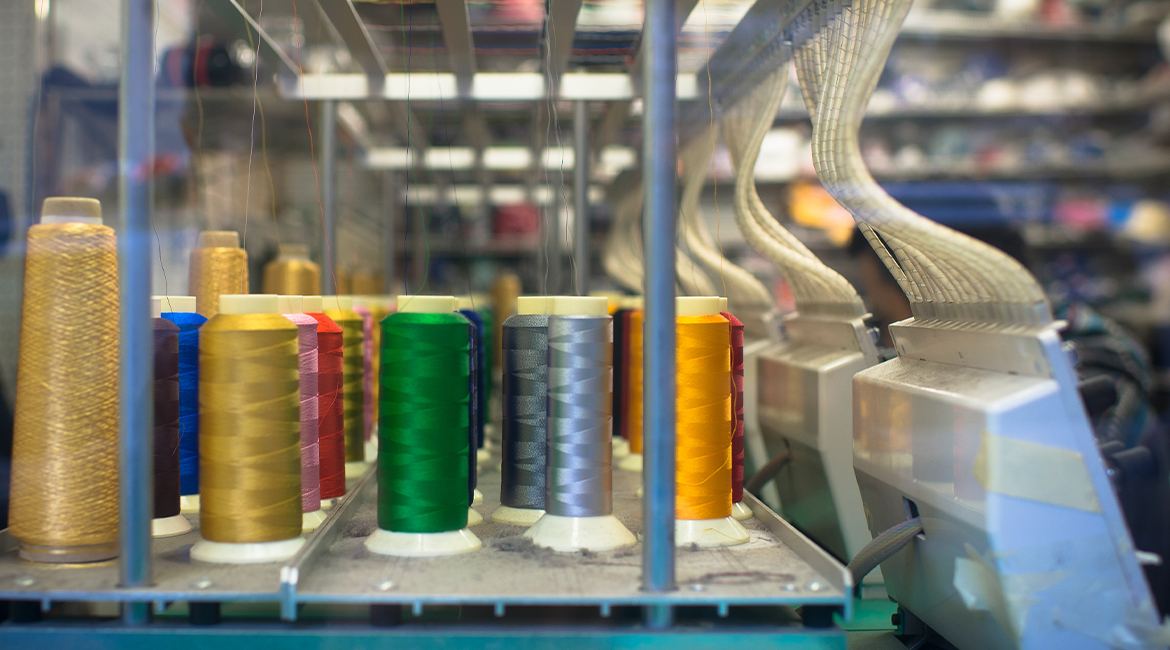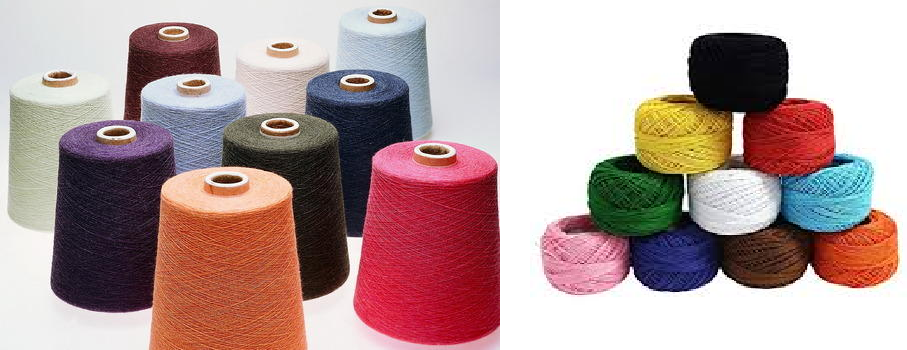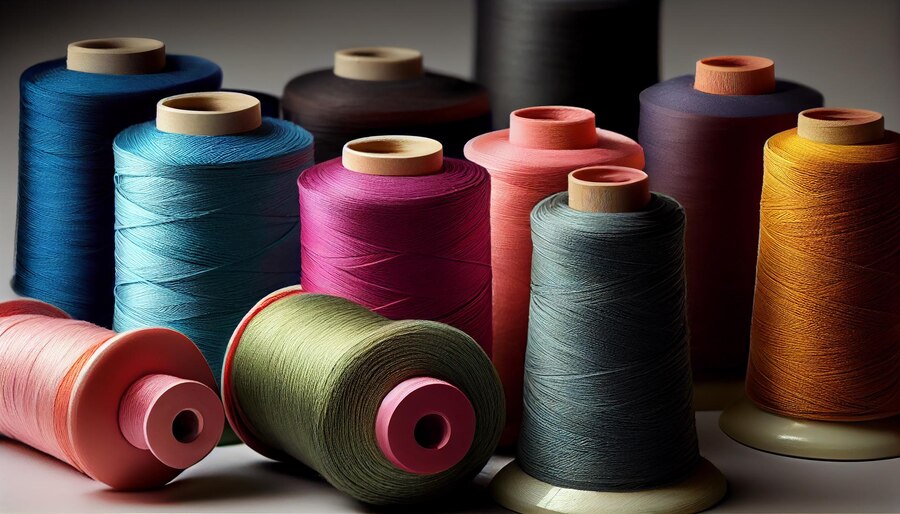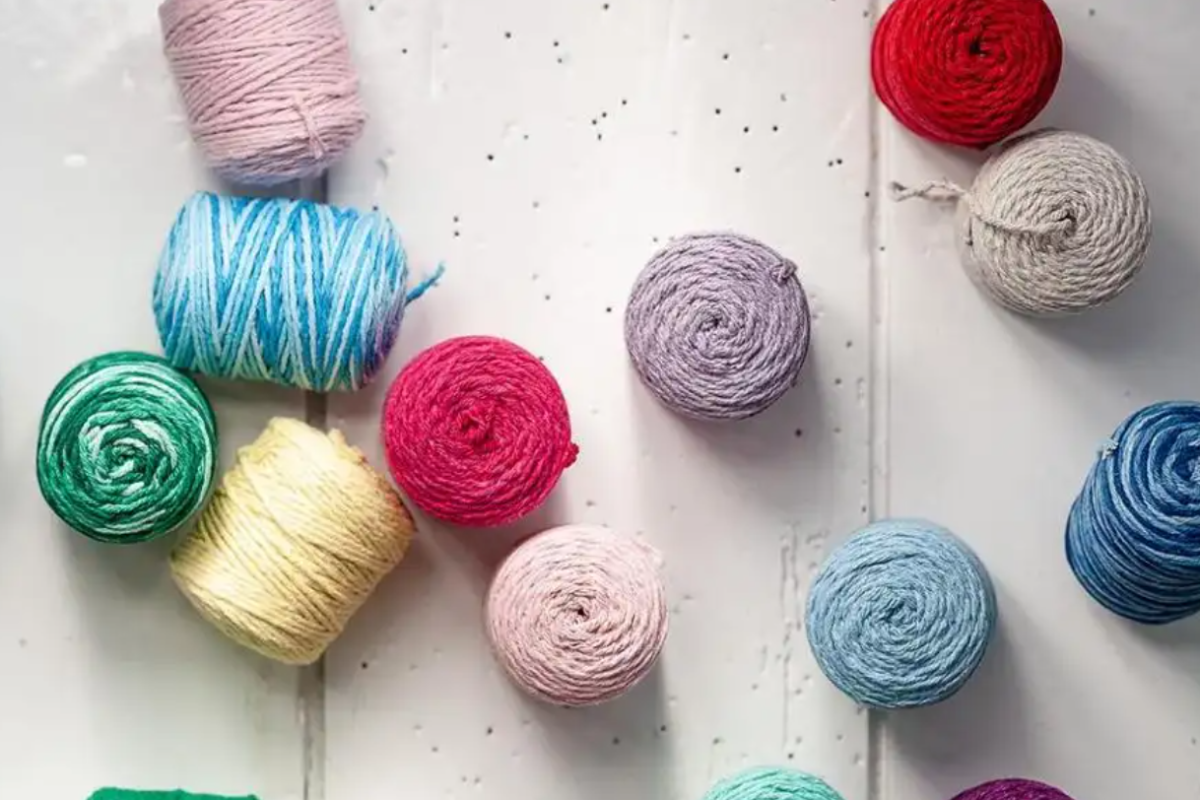In a world increasingly conscious of its environmental footprint, the fashion industry stands at a crossroads. As one of the largest contributors to global carbon emissions, the textile sector faces a pressing need for sustainable solutions. Enter KS Spinning Mills, a pioneering force in the realm of recycled yarn “Recycled Yarn Manufacturer” production. Join us as we unravel the fascinating journey of how discarded textiles transform into high-quality, eco-friendly yarn ready for your next favorite garment.
The Problem: Fashion’s Hefty Footprint
The numbers are staggering. The fashion industry alone accounts for a whopping 7-8% of global carbon emissions. To put this into perspective:
- Producing just 1 kilogram of cotton fabric guzzles approximately 10,000 liters of water.
- Cotton cultivation gobbles up 6% of the world’s pesticides and 16% of its insecticides, leading to significant soil and water pollution.
- The energy consumed throughout the production chain is enormous, not to mention the mountains of textile waste that end up in landfills, taking centuries to decompose.
It’s clear that the current model is unsustainable. But what if there was a way to create high-quality textiles without this environmental toll?
KS Spinning Mills’ Innovative Solution
At KS Spinning Mills, we’ve developed a groundbreaking approach to yarn production that’s turning the industry on its head. Our process begins where others end – with textile waste. We collect cotton and cotton-blended waste, breathing new life into materials that would otherwise be destined for landfills.
Through an advanced mechanical recycling process, we break down this waste and blend it with recycled PET fibers. The result? High-quality polyester yarns that are 100% recycled, created through a process that eliminates the need for water and dyes.
The Recycling Process: From Trash to Treasure
- Waste Collection: We gather discarded cotton and cotton-blend textiles from various sources.
- Sorting and Cleaning: The collected waste is meticulously sorted and cleaned to ensure quality.
- Mechanical Recycling: Using cutting-edge technology, we break down the textile waste into fibers.
- Blending with Recycled PET: We combine the recycled cotton fibers with recycled PET fibers for added strength and versatility.
- Yarn Production: Our state-of-the-art rotor spinning technology transforms the blended fibers into high-quality yarn.
Environmental Benefits: A Greener Thread
The impact of our recycled yarn “Recycled Yarn Manufacturer” production is far-reaching:
- Water Savings: By replacing just 10% of virgin cotton with our recycled yarn “Recycled Yarn Manufacturer”, we save a staggering 389 million liters of water annually.
- Energy Conservation: Substituting 10% of conventional polyester with our recycled version saves 29,500 MWh of energy each year.
- CO2 Reduction: The same 10% substitution cuts CO2 emissions by 13,600 tons annually.
- Waste Reduction: Every kilogram of recycled yarn “Recycled Yarn Manufacturer” means less textile waste in landfills and oceans, protecting both terrestrial and marine ecosystems.
Quality Meets Sustainability
At KS Spinning Mills, we believe that sustainability shouldn’t come at the cost of quality. Our investment in advanced machinery from leading global manufacturers ensures that our recycled yarns meet “Recycled Yarn Manufacturer”, and often exceed, industry standards. The result is a versatile product suitable for various applications, from everyday apparel to high-end fashion and home textiles.
From Yarn to Wardrobe: A Global Impact
Our recycled yarns “Recycled Yarn Manufacturer” are making waves in the global fashion scene. We’re proud to collaborate with major retailers and manufacturers worldwide, integrating our sustainable solutions into their supply chains. This partnership not only reduces the industry’s carbon footprint but also meets the growing consumer demand for eco-friendly products. In fact, 32% of consumers actively seek recycled products, with 24% willing to pay a premium for sustainability.
The Bigger Picture: Beyond Fashion
The impact of our work extends far beyond the fashion industry. By reducing carbon emissions and promoting sustainable practices, we’re contributing to global climate goals and supporting the United Nations’ Sustainable Development Goals. Moreover, our operations benefit local communities by creating cleaner surroundings and reducing pollution, leading to improved health outcomes and a better quality of life.
Weaving the Future: Continuous Innovation
At KS Spinning Mills, innovation is in our DNA. Our dedicated R&D team is constantly exploring new blends, pushing the boundaries of what’s possible with recycled materials. We’re not just reacting to market trends; we’re setting them, staying ahead of the curve to deliver cutting-edge sustainable solutions.
Looking ahead, we’re excited about our plans for vertical integration, including the establishment of our own fabric manufacturing unit and the launch of a consumer brand for home furnishings and apparel. These steps will allow us to control the entire production process, ensuring sustainability at every stage.
Conclusion: A Stitch in Time
The journey of our recycled yarn “Recycled Yarn Manufacturer” – from discarded waste to stylish wardrobe staple – represents more than just a production process. It’s a testament to human ingenuity and our capacity to find sustainable solutions to pressing environmental challenges.
As consumers, we hold the power to drive change through our choices. By opting for garments made from recycled yarn “Recycled Yarn Manufacturer”, we’re not just making a fashion statement; we’re making a statement about the kind of world we want to live in.
Join us in weaving a more sustainable future, one thread at a time. Choose recycled, choose responsible, choose a greener wardrobe.




